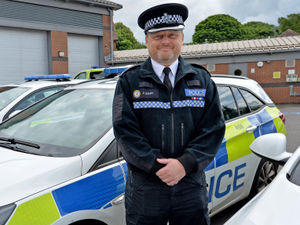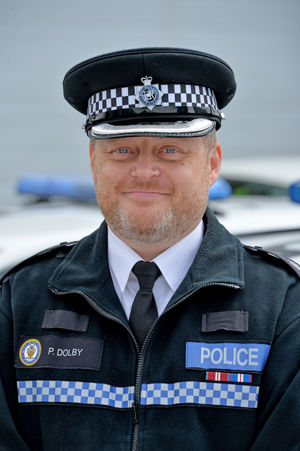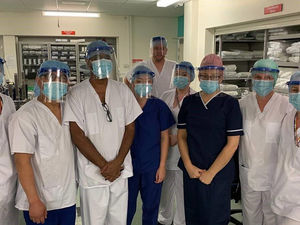Police commander: I want to help others by sharing traumatic Covid story
"I want to be able to help people with their mental health through telling my own story and my own experiences."

Chief Superintendent Phil Dolby is one of many to have suffered from the effects of Covid-19, having spent a fortnight in intensive care at Royal Worcestershire Hospital in March 2020, mostly heavily sedated and on a ventilator after he was unable to breathe for himself.
The 46-year-old said: "I started to feel poorly at the end of March 2020 and by the end of the week, I was on my hands and knees struggling to breathe, so we called an ambulance and I was taken to A&E around 2am on March 29.
"I remember filming for Twitter while in my cubicle, but I have no other memory up until two weeks later when people were holding me down as they pulled the ventilator tubes out of my throat.
"I have been told I went into respiratory arrest and had to be rushed to the ICU to be ventilated and then went into a coma for two weeks."
Chief Superintendent Dolby said he had also lost two stone in weight, suffered a blood clot on his lung and was unable to see his wife and children during his time in hospital due to lockdown restrictions.
He was successfully discharged to applause from staff at the hospital on April 21 and underwent two months of recovery at home before making a phased return to work.

The memories still linger for Chief Superintendent Dolby, however, who says that he remembered strong and vivid nightmares from the drugs he was given to keep him in a coma in hospital and spoke about recovery from not just him, but for his family as well.
He said: "The recovery isn't just mine, it's my wife and kids as they had to go through worrying if I was going to make it.
"The drugs that they give you to keep you in the coma and to see when they can treat you have a known side-effect of causing vivid and strong nightmares, which is called ICU delirium.
"It's a recognised condition and I had it big time because I'm much younger than the people who were being treated at the time, so my physical recovery is one thing, but the mental side is quite another."
The commander for the borough of Walsall said the force had helped him through his recovery through counselling for himself and his wife for post-traumatic stress disorder and said he wanted to help others going through the same experience.
He said: "I've been pretty open about what has happened to me to try and encourage other people to be open about what they're going through and let them know it's ok to not be ok.
"I feel able to help people because I can use my story as a vehicle to help other people, particularly around mental health.
"To use a car analogy, if the engine is busting, take it to a garage to get it fixed and, similarly, if what's under the hood in our heads isn't quite right, it's ok to to get some help about it."





